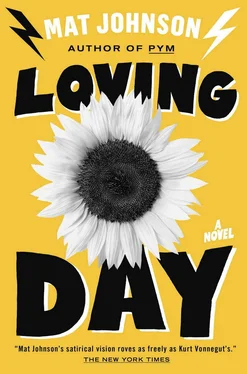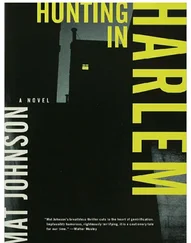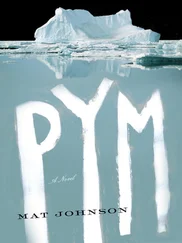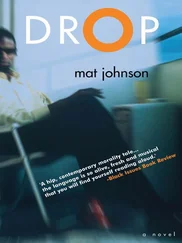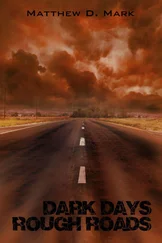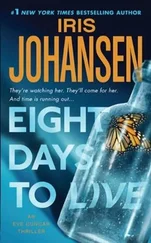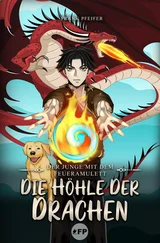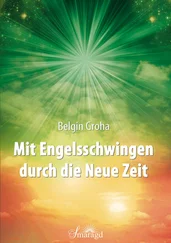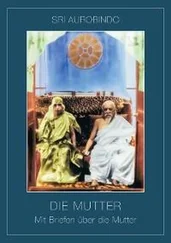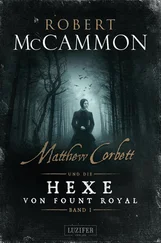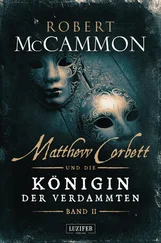“You’re definitely still Jewish.” Where is her old man? I ask myself, then realize this is the same question Irving Karp has been asking himself of me for seventeen years.
“Oh right. The whole Jewish Vagina Clause. I guess that fact hasn’t changed.” When she says “Jewish vagina” I think of her mother’s literal one before I can catch myself. I’m so damn light, my blushing looks like the igniting of a funeral pyre. She sees this, and then her face goes red as well.
“I didn’t know about you until a week ago, okay? Irv saw that you were coming to town, finally decided to tell me. I didn’t know you were a black till today.”
“Okay, look, it’s not ‘a black.’ It’s never ‘a black,’ okay? Just ‘black.’ Or African American.”
“You don’t look very African, but whatever.” My newfound daughter rolls her eyes at me, twirls her straw. “God, I guess I’m going to have to start using hot sauce on all my food now.”
“No, you don’t. You can’t possibly believe that,” I say, kind of laughing, hoping she’ll start laughing with me. She doesn’t. “Hey, I didn’t know you existed at all. But I’m glad, okay? I’m really glad,” I tell her. I just say it. I don’t say it because I mean it. But when I hear it out there I can tell it’s true. Hey look, Becks, I’m finally a father. My own father’s gone, Becks is so gone, but here is new family. Seventeen, but new to me.
“I saw your illustration, online. Some of it’s okay.” Tal shrugs. I want to tell her about her other grandfather, about my father, about how she just missed him, but don’t. I want to tell her that my mother died when I was young, too, but it’s morbid. Instead, I find myself saying, “You should go back to school. Your grandfather is right about that.” It’s a safe thing, an easy thing to latch onto, probably the only fatherly advice I’m qualified to give.
“I am so not going back to Kadima. I don’t fit in there. I never fit in there. I never fit in anywhere. Especially not now.”
“Then you’ll go somewhere you do. It’s important. I’ll help you. Let me do that for you. For your future. Whatever you decide to do once you get your diploma, that’s up to you. But you need to have the choices available to make—”
“You want to help me, want me to go back to school? Want us to be daughter and daddy? Fine. Just get me the hell out of here, and you got a deal. Take me back to Wales with you, that would be awesome. I could go to school there. Or just send me to boarding school. Send me someplace, like, Phillips Exeter. I have the grades. That’s it, Exeter. Send me there. Irv will go for that.”
“Exeter? That’s, that’s a lot of loot. And it’s so white ,” I catch myself saying.
“But I’m white,” she says, and I look hurt. I must look hurt, because she leans over the table and adds, “I’m as white as you look.” Then my new daughter pulls back again, twirling her hot-combed hair with a nail-bitten finger, my own snarl on the adjective mirrored.
“I CAN’T BELIEVE you’re here. I didn’t think you’d ever come back,” Tosha tells me from across her kitchen table. She’s got a table, a house, kids, her chosen husband. A whole established life. All new to me, and already old to her. She’s done so well since she rejected me. “And you’re a father, too! To a racist white girl.”
“Not racist. I said ‘casually racist.’ She just…she just doesn’t know better.”
“Because you haven’t been there to teach her. We never even met the wife, besides on Facebook, and now you’re a single dad of a teenager just as fast.”
“Biological. Biological father.” And then I think of Tal’s face and muster up all the nostalgia for yesterday and amend my statement. “Tal has a cleft chin. She got my mom’s cleft chin. All this time there was someone walking around with a chin I loved, and I didn’t even know it. She’s my daughter. I got a girl. An almost grown, pre-woman, girl.” This is the third rotation of this discussion. Apparently, we’re going to keep cycling through this information until both of us firmly accept it. “And she’s a white girl.”
“She’s not a white girl. She’s black. You’ve got a duty. To let her know who she really is, who we are. What blackness means, not the pathology you see on TV. What it is to be an African American woman in this world. That’s deep.” Tosha shakes her head at it, or me.
The fact that I wasted a decade of my life being in love with Tosha doesn’t seem to get in the way of our friendship now. This is largely because it’s also been more than a decade since we’ve actually seen each other, as well as our mutual understanding that I never really had a chance with her anyway. There is a story of our never becoming lovers, a mythology that I have for us that is boring and false, filled with details that I use to try and convince myself otherwise. I met her the same time George did, at the Greek Picnic, the summer of my freshman year. I had seen her on occasion before this, biking around the neighborhood, once on the R8 train, once at the Value Village shopping for jeans; she was too beautiful to approach or forget. But that summer began our friendship, which over the following summers and Christmas breaks grew from casual to intimate, though all the while George’s shadow hovered, as “I have a boyfriend at college” kept our relationship platonic. But because so many beautiful young women in my orbit had some placeholder boyfriend somewhere in the ether, Tosha’s relationship wasn’t something I took too seriously either. It was supposed to run its course, as was the norm.
After graduation, there was no formal announcement of their impending engagement. It was never mentioned to me, despite near daily interaction. It wasn’t said until Tosha nervously invited me to be a groomsman, a role I was unable to fulfill, as I decided soon after the invitation to leave the country instead.
Tosha married George because she loved him more, or despite our connection she loved me only as a friend. It was either or both reasons, or one or the other. That is the story I eventually accepted.
But I have another scenario, still in my head. That scenario says that Tosha went with George because I am a pale fail of a Negro who would never be enough for a “Nubian Princess,” a title which one of Tosha’s T-shirts declared. This is a product of my paranoia and profound insecurity but also of that time a cousin of George’s saw us at the movies and called him to warn that his girlfriend was “seeing some white boy,” a moment laughed off when it was revealed it was just her castrato, high-yellow nerd. And from the time we left a club on South Street and she was called a “cracker lover” for walking next to me, and from the look of shame that stayed on her face as we continued to the car. And of all her light-skinned jokes, though not numerous, and usually focused at women “damn near white,” and laughed off each time by me as I mentally catalogued. It was a product of the time I sprawled next to her on a park bench at Rittenhouse Square, studying our bare legs stretched out into the heat of July, noticing how pasty and inadequate my epidermis was lined up against her rich mahogany norm. I have never felt whiter than when next to her. I don’t like feeling white. It makes me feel robbed. Of my heritage. Of my true self. Of my mother. So when I found out that Tosha was lost to me, I regrouped by enrolling in an illustration program in Swansea, Wales, where dear Lord I have never felt blacker.
Back, I’m glad I didn’t try to stay and keep waiting for her, because Tosha still loves George. I like George enough, he’s okay, and if I had to pick between the two of us, then or now, I would have picked him over me without hesitation. I see him in his white undershirt, serving scrambled eggs and cheese to their three kids, making them laugh, and yes, I would rather be him than me. He’s a cop, detective grade, with a mortgage, and he knows where he belongs. I am a boy, still in my father’s house. He puts cheese in the eggs. He puts sharp cheddar cheese in the eggs, and soy bacon bits, stirs it all together and calls it “Daddy Eggs.” His kids, they love saying, “Daddy Eggs.” They ask for more, comment on how much they’ve eaten, and who’s all done, and they throw in that “Daddy Eggs” descriptor every time and it doesn’t seem to be getting old for anyone.
Читать дальше
